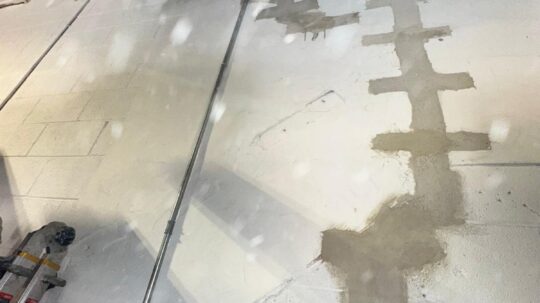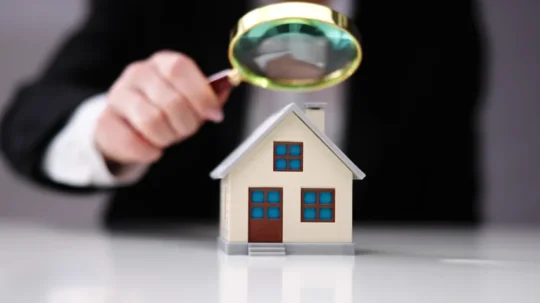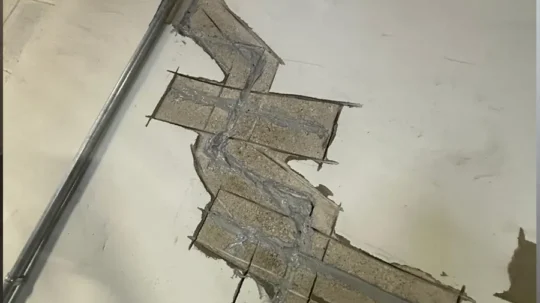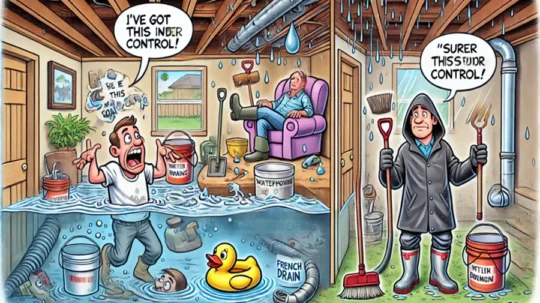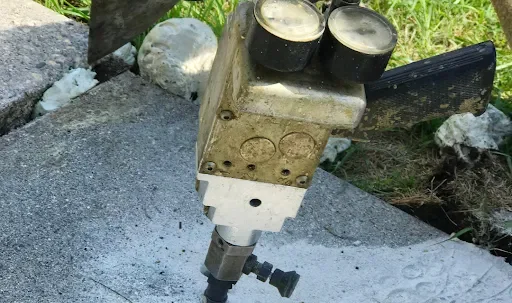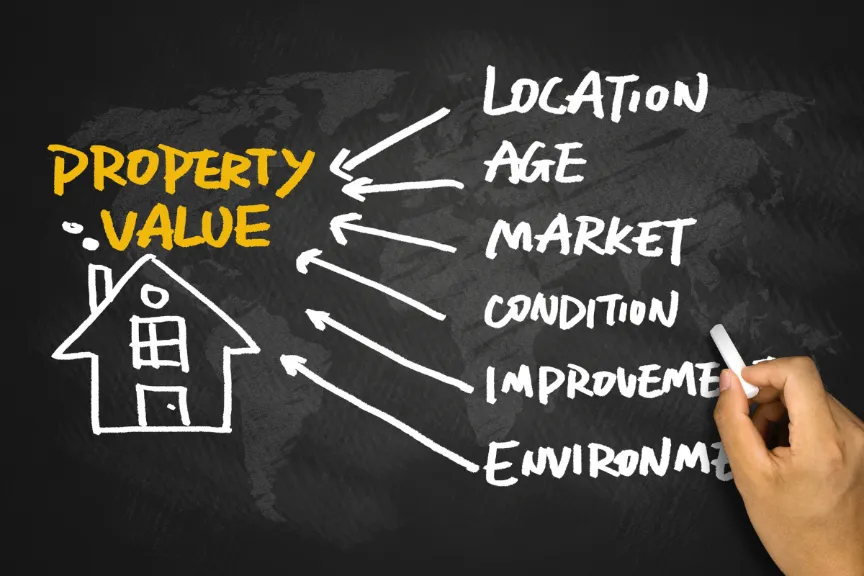
Does Foundation Repair Affect Home Value?
Does foundation repair affect home value? Absolutely. Foundation issues can lower home appraisal values, scare off buyers, and even cause mortgage approval problems. If left unaddressed, they can lead to structural instability and major financial setbacks when selling. Even after repairs, buyers and lenders will scrutinize the home’s history, making it super important to work with a certified, licensed, and experienced foundation specialist to ensure long-term stability.
At Foundation Concrete Repair, we provide expert foundation repair services throughout Long Island, Brooklyn, Queens, and the Bronx. With over 20 years of experience, we help homeowners protect their investment and maximize property value.
Schedule a Free Foundation Inspection! Our Expert Advice Is Always Free
How Does Foundation Repair Impact Home Value?
While foundation repair can protect or increase home value, its actual effect depends on several factors. Addressing issues proactively makes a home more marketable, but failing to do so can result in lower offers, drawn-out negotiations, and difficulty securing a mortgage.
Thinking of buying a house with foundation issues? Check out our advice here: Should You Buy a House with Foundation Problems?
Key Factors That Influence Home Value After Foundation Repair:
-
- Extent of Repairs – Minor crack repairs differ from major structural reinforcements. Some fixes restore full market value, while others simply prevent further depreciation.
-
- Buyer Confidence – Even after repairs, some buyers remain wary. Proper documentation and warranties help reassure them.
-
- Market Conditions – A competitive market may absorb foundation repairs more easily, while a buyer’s market might amplify concerns.
-
- Appraisal Impact – A professional appraiser will determine if repairs fully restored structural integrity. High-quality repairs often prevent value loss.
-
- Warranty & Documentation – A transferable foundation repair warranty provides buyers with confidence, increasing a home’s market appeal.
Foundation repair can be a smart investment when handled by professionals, but neglecting foundation issues can lead to significant financial losses when selling.
Next, let’s explore how to identify foundation damage and what steps homeowners should take to protect their property’s value.
The Impact of Foundation Issues on Home Appraisals
Home appraisals play a critical role in determining property value, and foundation issues can significantly lower an appraiser’s assessment. Since lenders use appraisals to determine loan eligibility, foundation damage can create financing hurdles, reducing buyer interest and overall market value.
Key Appraisal Concerns for Homes with Foundation Issues:
-
- Structural Damage – Visible cracks, uneven floors, or shifting walls signal foundation instability, leading to lower valuation and potential red flags for lenders.
-
- Repair Estimates – Appraisers may adjust home value downward based on the estimated cost of necessary foundation repairs.
-
- Comparable Property Adjustments – If similar homes in the area don’t have foundation issues, appraisers will reduce your home’s value to reflect the cost of repairs and perceived risk.
-
- Market Risk Factor – Homes with unresolved foundation issues are often labeled “high risk” in appraisal reports, which can make mortgage approval difficult for buyers.
-
- Longer Time on Market – If foundation concerns are noted in an appraisal, potential buyers may negotiate aggressively or avoid the property altogether.
Even if a home with foundation issues receives offers, buyers may struggle to secure financing if lenders view the property as a liability. This is why repairing foundation damage before listing is crucial—not only to protect property value but also to ensure a smoother real estate transaction.
Selling a house with foundation issues? Check out our expert guide here.
Next, let’s discuss the best ways to identify foundation damage and the steps homeowners should take to safeguard their investment.
How to Identify Foundation Problems
Foundation problems can develop gradually and go unnoticed until they become serious. Knowing the early warning signs can help homeowners address issues before they escalate into costly repairs. Below are some of the main signs of foundation problems:
Interior Signs of Foundation Problems
-
- Cracks in Walls or Ceilings – Hairline cracks can be normal, but large, widening cracks or stair-step patterns in drywall could signal foundation movement.
-
- Uneven or Sloping Floors – If floors feel unlevel or you notice a dip in certain areas, foundation shifting could be the cause.
-
- Doors and Windows Sticking – Difficulty opening or closing doors and windows may indicate shifting or settling.
-
- Gaps Between Walls and Ceiling or Floor – Noticeable separations can be a red flag for foundation movement.
-
- Water Intrusion in the Basement – Frequent water leaks or moisture issues in your basement could be caused by foundation cracks or poor drainage.
Exterior Signs of Foundation Damage
-
- Cracks in the Foundation – Vertical cracks can be harmless, but horizontal or diagonal cracks often indicate pressure from soil movement.
-
- Gaps Around Window and Door Frames – If gaps appear where frames meet exterior walls, it could be a sign of foundation shifting.
-
- Bowed or Leaning Walls – Foundation pressure can cause walls to bow inward, leading to major structural concerns.
-
- Chimney Leaning Away from the House – A shifting foundation can cause the chimney to separate from the home.
-
- Pooling Water Around the Foundation – Poor drainage can erode soil, leading to settlement and foundation instability.
IMPORTANT NOTE: If you notice any of these warning signs, it’s important to get a professional foundation inspection. A qualified expert can assess the severity of the problem and recommend the best repair solutions. If you live in Long Island, Brooklyn, Queens, or the Bronx, our team at Foundation Concrete Repair provides expert inspections to assess foundation damage and recommend the best repair solutions.
We Make it Easier than Ever to Repair Problems and Sell at Top Dollar!
At Foundation Concrete Repair, (proud member of the Zavza Seal LLC family) we offer affordable financing options to help homeowners address foundation issues without financial strain. Our goal is to ensure your home remains structurally sound and marketable, so you can sell at top dollar.
Don’t Ignore the Warning Signs – Get a Free Foundation Inspection Today!
How Much Does a Cracked Foundation Affect Home Value?
A cracked foundation can reduce a home’s value by thousands, depending on the severity and repair options. While minor cracks may have little impact if properly repaired, more severe foundation damage can lead to significant property devaluation, buyer hesitation, and mortgage approval challenges.
How Much Does a Cracked Foundation Affect Home Value?
-
- Minor Cracks (Hairline or Surface-Level) – Small, non-structural cracks in basement walls or slab foundations typically have minimal impact on home value if repaired correctly. Buyers may overlook these if they come with proper documentation.
-
- Moderate Cracks (1/4 Inch or Larger, Spreading) – Cracks of this size can indicate foundation movement. If left unaddressed, they can reduce home value by 5-10% and deter buyers who fear future issues.
-
- Severe Cracks (Wide Gaps, Stair-Step Patterns, or Bowing Walls) – Extensive foundation damage drastically lowers property value, makes securing buyers difficult, and can lead to appraisal reductions of 15% or more.
If cracks are left unrepaired, they signal ongoing structural concerns, which not only scare off buyers but also make securing financing much harder. However, proper repairs from a licensed professional with a warranty can restore value and reassure potential buyers.
Does Foundation Repair Affect Home Value: Final Thoughts
Understanding how foundation issues affect property value can help homeowners make informed decisions about repairs and real estate transactions. Ignoring foundation concerns can result in steep property devaluation, while properly executed repairs can restore home value and buyer confidence.
At Foundation Concrete Repair, we help homeowners in Long Island, Brooklyn, Queens, and the Bronx assess, repair, and protect their homes with certified, licensed, and warrantied foundation solutions.
Protect Your Home’s Value – Address Foundation Issues Before They Become a Dealbreaker!
Frequently Asked Questions
In the toggles to your right, we’ve addressed some of the most common questions about how foundation repair influences home value, inspections, and marketability to help you make informed decisions.
What Affects the Resale Value of a Home?
Several factors affect a home’s resale value, including location, market trends, home condition, lot size, upgrades, and curb appeal. Structural integrity, neighborhood desirability, school districts, and energy efficiency also play key roles. Homes in high-demand areas with modern features tend to have stronger resale value.
Does Lot Size Affect Home Value?
Yes, lot size affects home value, especially in areas where land is scarce. Larger lots generally increase property value, providing more outdoor space, expansion potential, and privacy. However, value impact depends on location, zoning regulations, and buyer preferences in the local market.
How Does the Age of a Home Affect Value?
The age of a home affects value based on condition, updates, and historical significance. Well-maintained older homes with modern upgrades can hold strong value, while outdated homes with aging systems may require price adjustments. Newer homes tend to attract buyers seeking energy efficiency and fewer repairs.
Do Power Lines Affect Home Value?
Yes, power lines can affect home value, primarily due to aesthetic concerns and perceived health risks. Homes near high-voltage power lines may see a slight decrease in value due to buyer hesitation, but the impact varies based on location, distance, and market demand. Some buyers may overlook power lines if the home offers other desirable features.
Does a Radon Mitigation System Affect Home Value?
Yes, a radon mitigation system can positively affect home value by addressing potential health risks. Buyers may see it as a proactive safety measure, preventing high radon exposure. While radon presence can initially lower a home’s appeal, an installed mitigation system reassures buyers and may make the home easier to sell.
Does Asbestos Affect Home Value?
Yes, asbestos can negatively affect home value due to health concerns and potential removal costs. While asbestos is safe if undisturbed, buyers may negotiate a lower price or request professional remediation before purchase. Disclosure laws vary by state, and sellers must inform buyers if asbestos is present.
How Much Does a Cracked Foundation Affect Home Value?
A cracked foundation can significantly lower home value, depending on the severity of the damage. Minor cracks may have little impact, but major foundation issues can deter buyers, reduce financing options, and require costly repairs. Sellers may need to fix foundation problems or offer price reductions to attract buyers.
How Does a New Roof Affect Home Value?
A new roof positively affects home value by improving curb appeal, increasing energy efficiency, and reducing maintenance concerns. Studies show that homeowners can recoup a significant portion of roofing costs when selling, as buyers value move-in-ready properties with fewer repair needs.
Do Solar Panels Affect Home Value?
Yes, solar panels can positively affect home value by increasing energy efficiency and reducing utility costs. Studies show that homes with owned solar panels typically sell for more, while leased panels may complicate the sale. The impact depends on local incentives, electricity costs, and buyer interest in renewable energy.

